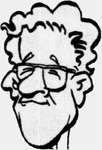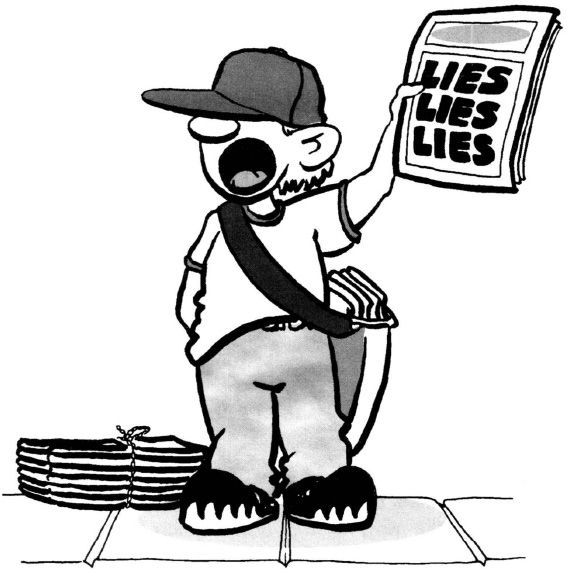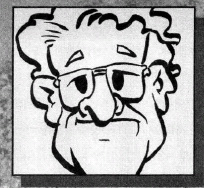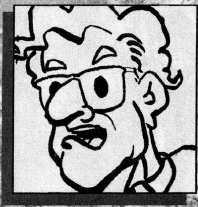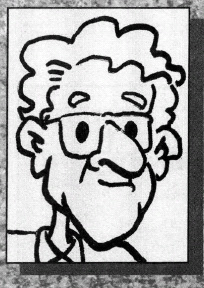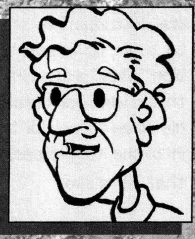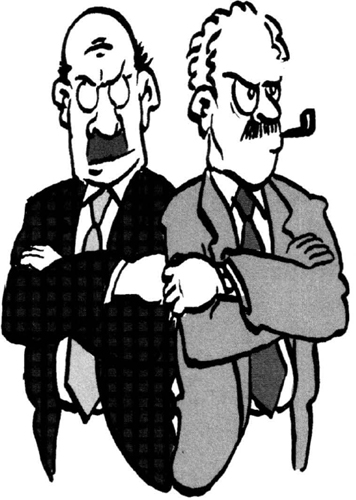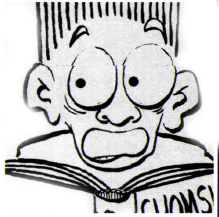 oam Chomsky is one of the ten most-quoted writers of all time.
oam Chomsky is one of the ten most-quoted writers of all time.
The Chicago Tribune has called Professor Chomsky “the most cited living author,” adding that among intellectual luminaries of all eras, he ranks eighth, just behind Plato and Sigmund Freud.
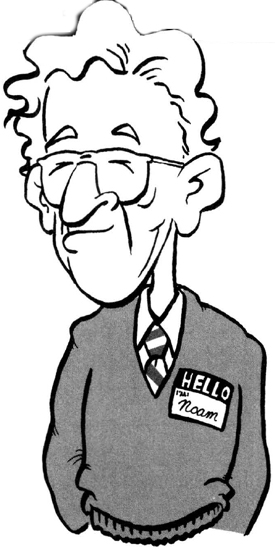
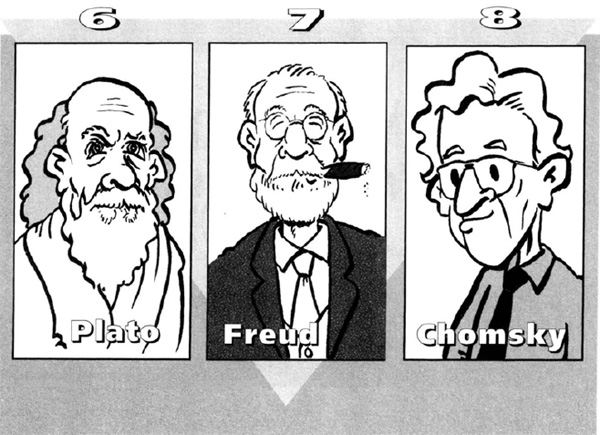
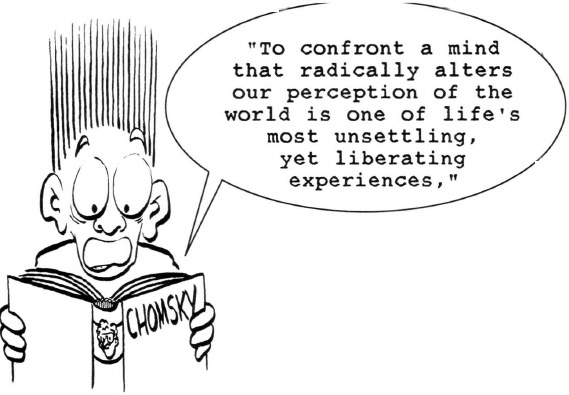
… writes James Peck in the Introduction to The Chomsky Reader. “In all American history, no one’s writings are more unsettling than Noam Chomsky’s…. No intellectual tradition quite captures his voice …. No party claims him; he is a spokesman for no ideology.”
Noam Who?
In the 1990s, this is still the most frequent response to the mention of the name of Noam Chomsky, a mild-mannered professor of linguistics at the Massachusetts Institute of Technology.
(Why, you might wonder, have so many of us never heard of someone so “famous?” Is this the ultimate Yogi-Berra-ism—He’s so famous no one’s ever heard of him?)
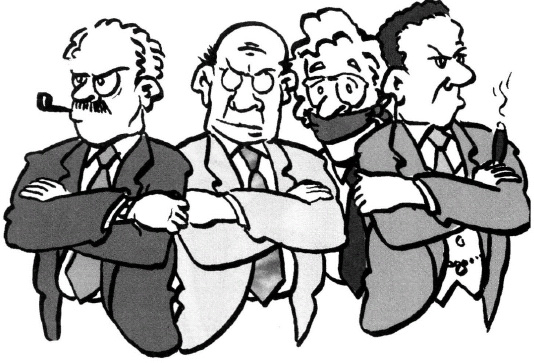
The reason you haven’t heard much about Noam Chomsky (which, by the way, is a demonstration in action of his thesis that the Media manipulates /distorts/withholds information to suit their owners) is because the gentlemen who own the Major Media don’t want you to know about Noam Chomsky.
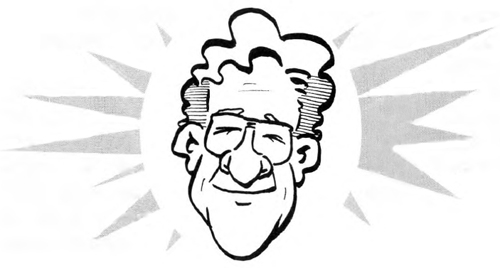
If too many people listen open-mindedly to what Chomsky has to say about huge corporations running the country, the world, both political parties, and the Major Media…why, the whole ginger-bread fantasy we’ve been fed about America might vanish like the Emperor’s clothes.
Noam Chomsky has articulated a system of ideas that can help us make sense of our intuitions and misgivings—and to know which are justified and which are not. Because Chomsky’s ideas about politics are antithetical to the purposes of the mass media—and to the rich gentlemen who own them—his ideas are rarely encountered in the mainstream. (“These institutions are not self-destructive, after all,” he says.)
This documentary comic book is an attempt to help remedy that situation by presenting Chomsky’s ideas to people who have not been exposed to them. It does not presume to sum up the work of Noam Chomsky. It is meant as a general introduction, an attempt to begin to answer the question “Who?” and an invitation to those who are unfamiliar with his ideas to look for themselves into the very pressing issues that he raises.
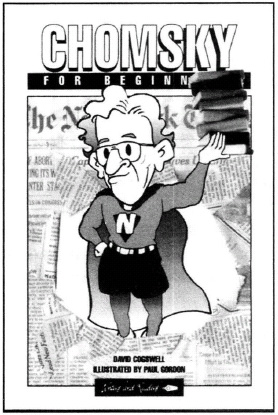
For those who may be completely unfamiliar with Noam Chomsky, let us begin by noting that Chomsky is known to the world for his work in two distinct areas. He first became famous through his work in linguistics, the study of language itself.
Chomsky’s second career, as a political and social analyst and critic, is harder to categorize. It was his passion long before he became involved in linguistics, and it is what he has written most of his many books about. But if Chomsky had not first established such a distinguished reputation as a scientist, his radical political ideas would probably be even less heard of in the mainstream than they are.
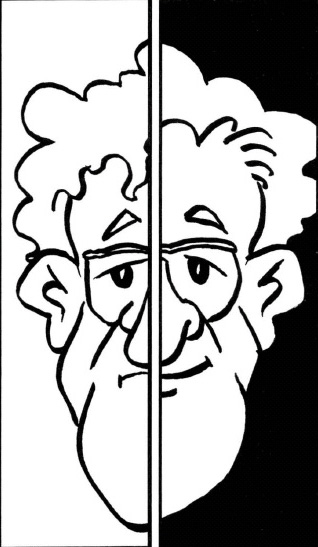
Like Einstein’s theory of Relativity, Chomsky’s ideas about linguistics have spread in their influence, and their effects are gradually filtering down to the lives of ordinary people. But his work as a social and political theorist and as a “media critic” is of pressing importance right now to everyone who is concerned about the survival of democratic institutions, the protection of human rights and freedom, and the preservation of a habitable environment. It is this work that is of most pressing relevance to the general public. Chomsky is not a philosopher you leave in the classroom; he helps you live your life.
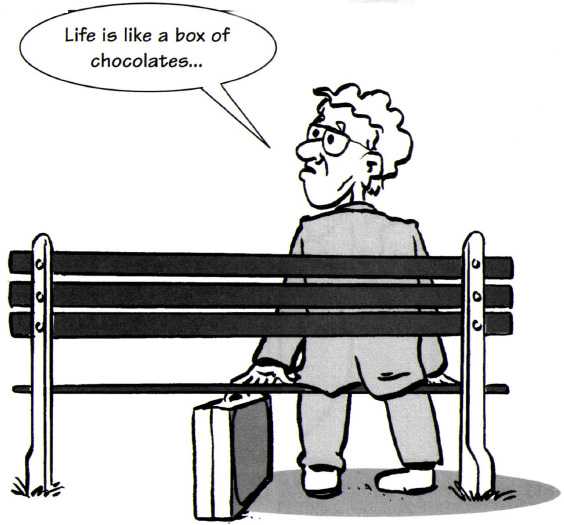
First, a little background: How did Noam Chomsky come to be one of the ten most-quoted authors of all time, “arguably the most important intellectual alive.”?
Well, among other things, he was a college drop-out…
